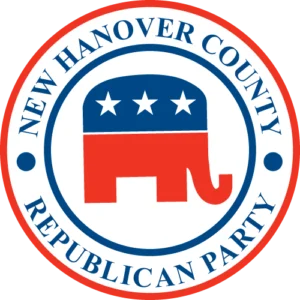With over 150,000 ballots already cast during the first week of early voting in North Carolina’s primary election, the state’s largest counties are reporting robust levels of poll worker recruitment to facilitate the democratic process.
All 100 counties in North Carolina must prepare for voters to head to their local polling site, which requires recruiting thousands of election workers to ensure a smooth and fair election. County boards of elections are responsible for securing an adequate number of paid poll workers whose job functions include setting up the voting equipment, checking in voters, and processing ballots.
However, recruiting poll workers can be difficult when the job is temporary, with long schedules and low pay. Yet the three most populated counties in the state – Wake, Mecklenburg, and Guilford – are all on track with poll worker recruitment, officials report.
As the largest county in the state, Wake County is fully staffed with 672 paid poll officials for early voting and 2,532 recruited for Election Day. A Board of Elections official in Mecklenburg, the second most populated county in North Carolina, said they have filled all recruitment slots. However, because recruitment is ever-changing, they are continuing their outreach efforts. Similarly, while Guilford County reports a solid base of poll workers, they note personal challenges such as illness and other last-minute personal conflicts that affect recruitment levels.
As primary elections approach across the nation, states like Oklahoma and West Virginia face poll worker shortages. North Carolina faced a shortage in 2020 during the COVID-19 emergency, but numbers for this election cycle remain adequate.
The North Carolina Democratic Party and the NCGOP make efforts to recruit individuals to serve as poll observers at voting locations to ensure no partisan bias in the administration of elections. Democrats have historically had success pushing their supporters to work at polling sites, promoting many poll watcher volunteer opportunities across the state.
On the other hand, Republicans have struggled up until recently. A 1982 consent decree significantly limited the Republican National Committee’s ability to challenge voters’ qualifications and target fraud, but a judge terminated those restrictions in 2018. Republicans have since focused efforts on election integrity by pushing more GOP election workers to the polls through their Protect the Ballot initiative.
The efforts have paid off this election cycle, explained a local GOP official:
“We probably have more paid poll workers and judges on the GOP side than we’ve ever had before… We’re definitely pleased with the way Wake County is going in terms of judges and paid poll workers,” said Karyn Mulligan, first vice chair of Wake GOP. “I would say that we’re on track right now with observers for early voting.”
Poll watchers are different from poll workers in that they are unpaid and appointed directly by the political parties to monitor the election process at each precinct. Mulligan explained that representation from both sides of the political aisle is crucial to ensure everyone’s vote counts.
Moreover, with voter ID requirements fully in place across the state, election officials’ responsibilities have grown. Lawmakers also enacted new rules last year that will likely result in more poll observers being present at voting sites this election year.
As a former poll worker, Jerry Doliner recounted his experience to the Carolina Journal as someone who has worked on the ground in Wake County. He described poll working as ‘gut-level democracy’ and said he found the process very fair and honest. Specifically, one rule he noted is that poll workers must ask for every voter’s name and address and then, by law, repeat their name and address back to them – even if you know the person.
“That’s why it’s important for there to be members of both parties present at the polling place on election day and, by extension, during early voting so that the election laws are followed,” said Doliner.
Early voting for primary elections runs through March 2. Primary Election Day is March 5.
View full story at CarolinaJournal.com
